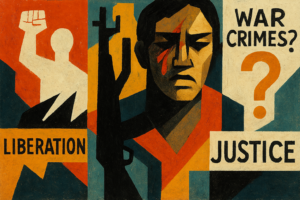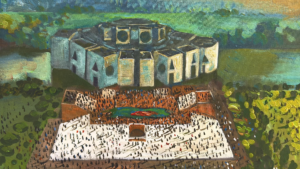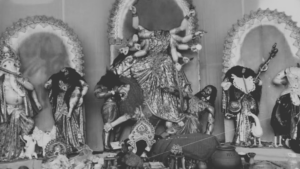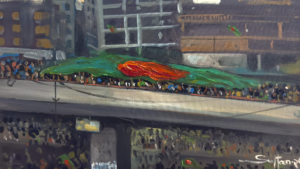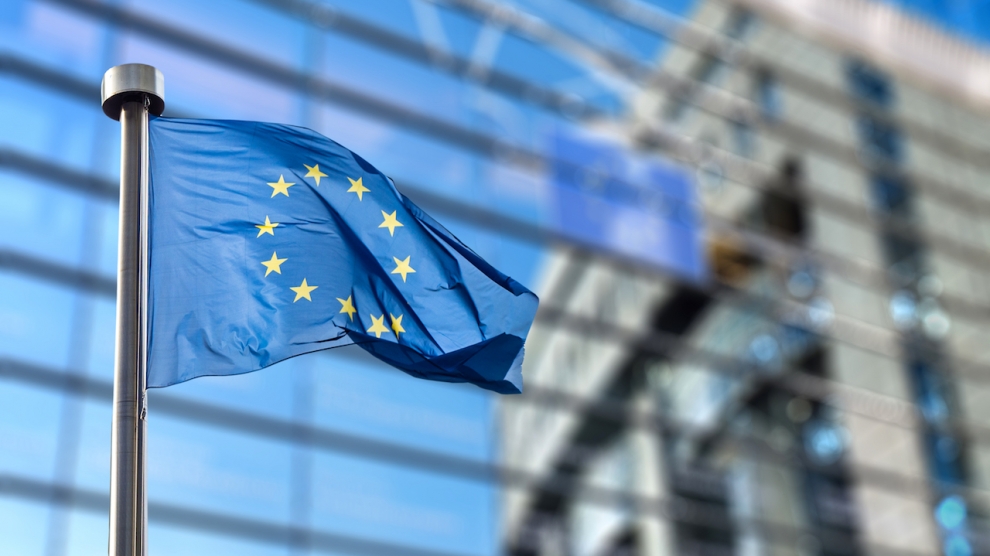
The statement of the heads of the diplomatic missions of the European Union, Norway and Sweden in Dhaka on Monday (December 10) calling to “ensure a genuine, credible, inclusive and transparent electoral process” in the upcoming parliamentary election warrants our attention. The question is whether it’s a routine diplomatic gesture or there is more to it. The timing, tone and tenor of the statement do not suggest a mere formality, particularly when a number of recent developments in Europe and the United States point to an increasing interest among the international community about the election scheduled for December 30.
Until recently, there seemed to be a mood of resignation among the international community that the election will be a repeat of 2014, when the opposition boycotted the election and the ruling Awami League got a free pass. While many blamed the Bangladesh Nationalist Party (BNP) for its decision to boycott, others have suggested that the ruling party wanted the BNP to stay away from the election. There is a theory that the BNP walked into the ruling party’s trap by boycotting. Whether it is the BNP’s misjudgment and wrong political calculation which is to be blamed or a well-designed and well-executed plan of the AL, is a matter of interpretation but the consequence is beyond disagreement: the 2014 election was far from an acceptable election. It delivered a hollow victory to the AL, and its moral legitimacy has remained questionable until now. Besides, it is not an exaggeration that the election changed the course of the country’s politics: the democratic space has increasingly shrunken since then, the authoritarian bent of the government has become palpable and the possibility of inclusive politics, let alone an inclusive election, has gradually begun to fade.
The international community, that is the members of the EU, the United States and other development partners, continued to call for an inclusive election at every occasion, which was quite conveniently ignored by the government. Prime Minister Sheikh Hasina and her associates insisted that they too want an inclusive election. But beyond the rhetoric, there were very few, if any, indications that the government wants to create an environment conducive to an inclusive election. Harassment and persecution of opposition activists and filing “ghost cases” became normal; judicial and extrajudicial measures have been employed against the critics of the government; and freedom of assembly remained limited at best. The growing number of extrajudicial killings and the normalisation of enforced disappearances clearly were not viewed as an encouraging environment for the opposition to participate in the election. However, there is a widespread perception that the international community had encouraged, if not insisted, the opposition to join the election and shun street agitation.
Several City Corporation elections held under the present Election Commission gave very little credence to the claim that it is acting neutrally. It is against this backdrop that the European Union, when it planned various election monitoring missions early this year, decided to exclude Bangladesh. Although its public statement cited scarcity of funds, there were clear indications that the quality of the forthcoming election was a major concern for the EU. Recently, in an interview with the German broadcaster Deutsche Welle, Josef Weidenholzer, a member of the European Parliament, said, “The current political situation in Bangladesh does not display the existence of fundamental prerequisites of fair elections such as freedom of assembly, freedom of press, etc. The opposition is restricted, and its leader Khaleda Zia is sentenced to 10 years in jail lacking a fair trial. There is no independent election commission.” He also stated, “Under such conditions, the presence of a European Parliament election observation mission would not fulfill its objectives and could be misused for distortive purposes.”
There were serious concerns, among observers of Bangladeshi politics, whether the BNP would be willing or able to participate in the election. Notwithstanding the persecution of the opposition activists since the 2014 election and the failed movement in 2015, the conviction of Khaleda Zia in February and October this year, and the increase in her punishment on appeal from the government, provided an impression that the BNP is being forced into treading the path it took in 2014. But the BNP did not choose the same path, which surprised many including an analyst who penned the Briefing Paper for the British House of Commons Library. However, the emergence of the Jatiya Oikyafront, headed by Dr Kamal Hossain, in early October has brought a sea-change in the political landscape. Expectedly, the international community has taken note of it.
The importance of the election has been underscored at various forums. For example, on November 15, several members of the European Parliament expressed concerns on the state of human rights and stated that “the coming election in Bangladesh poses as the country’s last chance to determine the course of its democracy and rule of law.” On the same day, a hearing held by the Tom Lantos Human Rights Commission (TLHRC) of the US House of Representatives, was told of the sorry state of human rights and concerns regarding a credible and transparent election. Two resolutions have been introduced in the US House of Representatives between November and December: HR 1156 and HR 1169. The latter particularly called on the House to reaffirm “the commitment of the United States to promote free, fair, transparent and credible elections in Bangladesh.” Although none of these resolutions is expected to come to the floor from the House Committee on Foreign Affairs and acted upon before the election, they show that the US Congress is not oblivious to the situation.
The statement of the heads of the EU diplomatic missions at Dhaka has come on the heels of these recent developments. One may recall that the January 2014 election received more international attention than any in Bangladesh’s history. Clearly, there was a schism between India and the international community on the issue of the election; the former was not opposed to a non-inclusive election while the latter, especially the US, UK, and various multilateral organisations, called for an inclusive election. The 2018 election is yet to see such levels of involvement of the international community.
Many are asking whether it is too little, too late for the international community to act to ensure that the country holds a credible and transparent election. But there are indications that unlike a few months ago when the international community seemed to have accepted the political trajectory as fait accompli and the election results as a foregone conclusion, there is a growing sense that it has a role to play. What role the international community can and will play to ensure that the election, participated in by the opposition, does not become a “staged show” is up to itself. But it can hardly avoid the responsibility after encouraging the opposition to participate even when the situation is far from a “level playing” field.
The Daily Star, 12 December 2018

